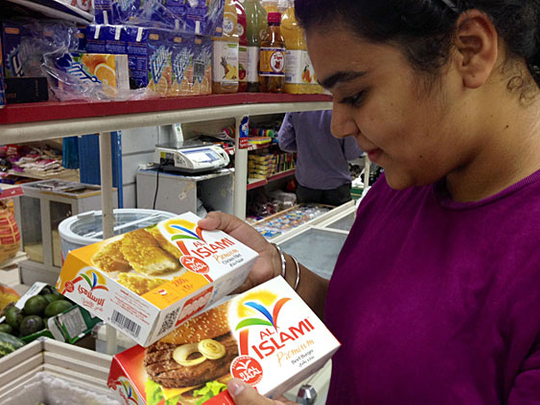
Dubai: Al Islami Foods posted a profit of Dh15.2 million last year from Dh9.2 million in 2012, the company said on Sunday.
The rise in profit was driven by the company’s business in the Horeca (Hotels, Restaurants and Cafes) sector in the UAE and its businesses in both the Horeca and retail sectors in the Gulf Cooperation Council (GCC) and other Arab countries.
“Over the past two years, Al Islami has invested primarily in two key areas — the Horeca sector and GCC countries along with other Arab countries where we observed a growing demand for genuine halal food,” Hamid Badawi, deputy chief executive of Al Islami Foods, told Gulf News in an emailed statement.
While food consumption marginally increased in the GCC, Al Islami remained profitable by expanding beyond the region, according to Saleh Saeed Lootah, the company’s chairman.
While Al Islami Foods, which produces packaged halal food, said its revenue for the year stood at Dh300 million, up 8 per cent compared to the previous year, mostly driven by demand from Iraq, Yemen, Libya, Russia and the CIS (Commonwealth of Independent States). However, the company’s biggest markets continue to be the UAE and GCC.
International sales grew by 14 per cent and 23 per cent in volume as a result of growing awareness about halal food in Europe and the CIS, the company said.
“While we were consolidating our presence in the GCC, we were also looking outwards to reach countries that are witnessing a growing shift towards halal food,” Badawi said.
Al Islami Foods is looking to expand its business in the Far East. It is in talks with potential partners in Malaysia and Indonesia.
Indonesia, which has the world’s largest Muslim population, plans to establish a centre for the halal industry by 2015, according to the Oxford Business Group.
Halal food accounts for around a fifth of global food trade, according to Datamonitor.
Al Islami Foods said it aims to increase investment in its second factory in Dubai, which is expected to triple the company’s production capacity. The company’s existing factory currently handles a monthly production of 550 tonnes of processed food. The new factory will be able to manage 1,500 to 2,000 tonnes monthly.
The Dh100 million facility, which is expected to be operational next year, will be located in Dubai Investment Park.
“The new plant is in line with our expansion strategy and will help us to satisfy the increasing regional demand for food products of global standards. This latest development is also an example of our commitment to continue to invest in the UAE economy and build it as a world leader of the halal economy,” said Saleh Abdullah Lootah, Al Islami Foods’ board member.












